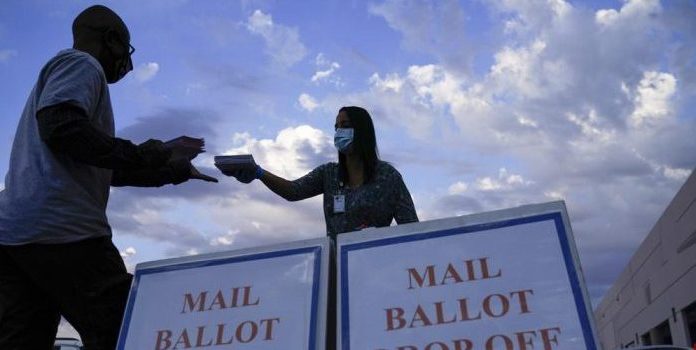(John R. Lott Jr. – RealClear Wire) Watching the news, you’d be led to believe that vote fraud doesn’t exist in the United States. Since the election on Nov. 8, news article after news article has simply dismissed any claims of vote fraud as “baseless” (New York Times and CNN) and “without evidence” (NPR, New York Times, and Washington Post). Republican gubernatorial candidate Kari Lake is lambasted for “stoking fears on mail-in ballots.” And the news coverage was no different after the 2020 election.
But American voters aren’t convinced. A Rasmussen Reports survey from late September found that 84% of likely voters were concerned about election integrity in this year’s congressional elections. It was a belief shared by every category of voters, including liberals and Democrats, though they were less concerned than conservatives and Republicans.
Voters thought that “making sure that there is no cheating in elections” was more important than “making it easier to for everyone to vote.” The margin was 62% to 36%. The highest-paid individuals and those with graduate school educations are the most concerned about making it “easier for everybody to vote.” Those who didn’t complete high school and high school graduates were the most concerned about fraud. That hardly fits with fears that voter IDs and other anti-fraud measures will disenfranchise the poorest and least educated.
The slow ballot counts in heavily contested Arizona and Nevada have hardly given Americans confidence, and surveys show that most likely voters think that mail-in voting makes cheating easier.
What is amazing is how much our voting rules have changed in such a short period of time. Our elections are now much less secure than elsewhere in the world.
“Absentee ballots remain the largest source of potential voter fraud,” concluded the 2005 report of the Commission on Federal Election Reform. The bipartisan commission was chaired by former Democratic President Jimmy Carter and former Secretary of State James Baker III. Former Democratic Senate majority leader Tom Daschle was another prominent Democrat on the commission.
But those bipartisan fears are so 2005.
Mail-in ballots, which are sent to all registered voters, are much more problematic than absentee ballots. The latter go only to those who specifically request them. I lived in an apartment building in Nevada during the primary in 2020, and I received ballots for the three previous tenants. There were ballots dumped all over the mailroom floor.
The commission’s report provided numerous examples of vote fraud with absentee ballots, but there are many more recent examples. In September, the Biden Department of Justice charged a New York state Republican official with applying “for absentee ballots in the names of people who had no interest in voting in 2021 and did not request absentee ballots or Schofield’s assistance in voting or obtaining absentee ballots.” Other recent examples of fraud include a congressional race in North Carolina and a city council race in Mississippi.
In 2012, even the New York Times ran a news article titled “Error and Fraud at Issue as Absentee Voting Rises.”
But the big problem with mail-in or absentee ballots is vote buying. “Vote buying schemes are far more difficult to detect when citizens vote by mail,” the Carter Baker Commission noted. How can you detect vote buying when both the buyer and seller are incentivized to hide the transaction?
Mail-in ballots allow people to prove how they voted. A practice called ballot harvesting then allows a third party to collect the ballots and ensure that they will be cast. These two practices, taken together, guarantee that the person buying the votes is getting what they pay for and creates the very real possibility of vote buying on a massive scale.
Most countries carefully restrict absentee ballots because of these concerns. In Europe, 35 of the 47 countries ban the issuing of absentee ballots to people who are legally resident in the country. Another 10 allow anyone to request an absentee ballot, but require people to go in person to pick up their absentee ballots and provide a government-issued photo ID to make sure that the right person gets the ballot.
France used to have rules similar to ours, but the country banned absentee voting in 1975 after massive fraud was discovered on the island region of Corsica. There, postal ballots were stolen or bought and others were cast in the names of dead people.
A long history of vote-buying led to America’s gradual adoption of secret ballots between 1888 and 1950. Secret ballots made it harder for vote buyers to monitor how people actually voted. My research with Larry Kenny at the University of Florida has found that voter turnout fell by 8% to 12% after states adopted the secret ballot. This suggests that a lot of people stopped voting when they were no longer getting paid.
The media and Democrats tell us that vote fraud doesn’t exist, and that there are no problems with mail-in ballots. But to believe that, we must believe that Americans are different from people in the rest of the world, and that Americans today are different from Americans in the past. Let’s learn the lessons of electoral history and stop imagining that the United States is above it all.
This article was originally published by RealClearPolitics and made available via RealClearWire.

